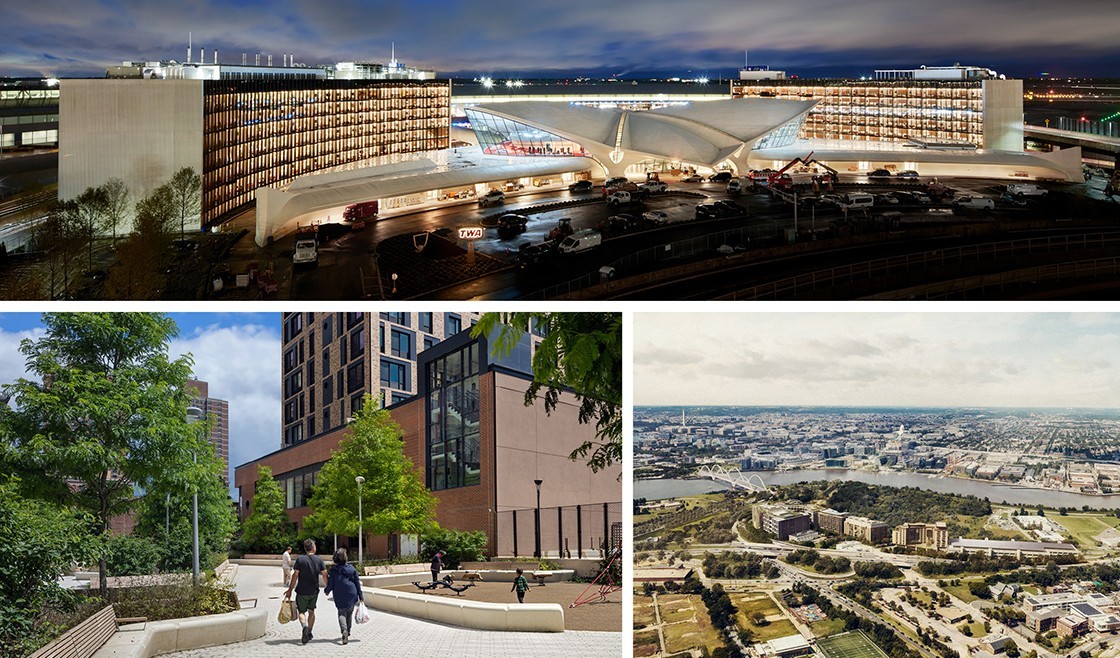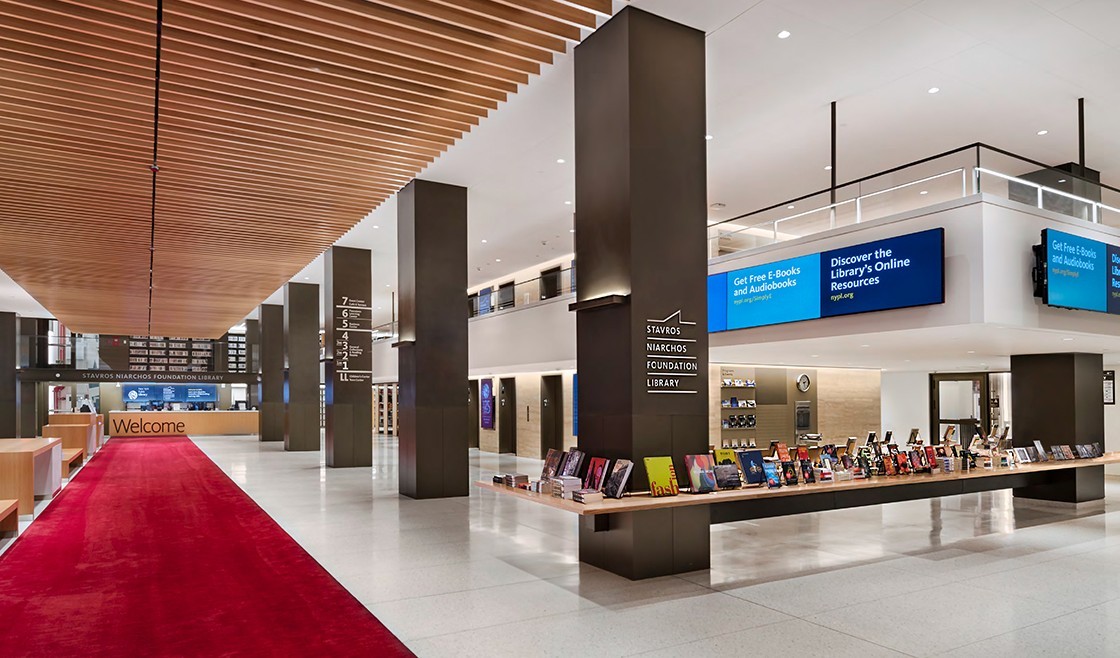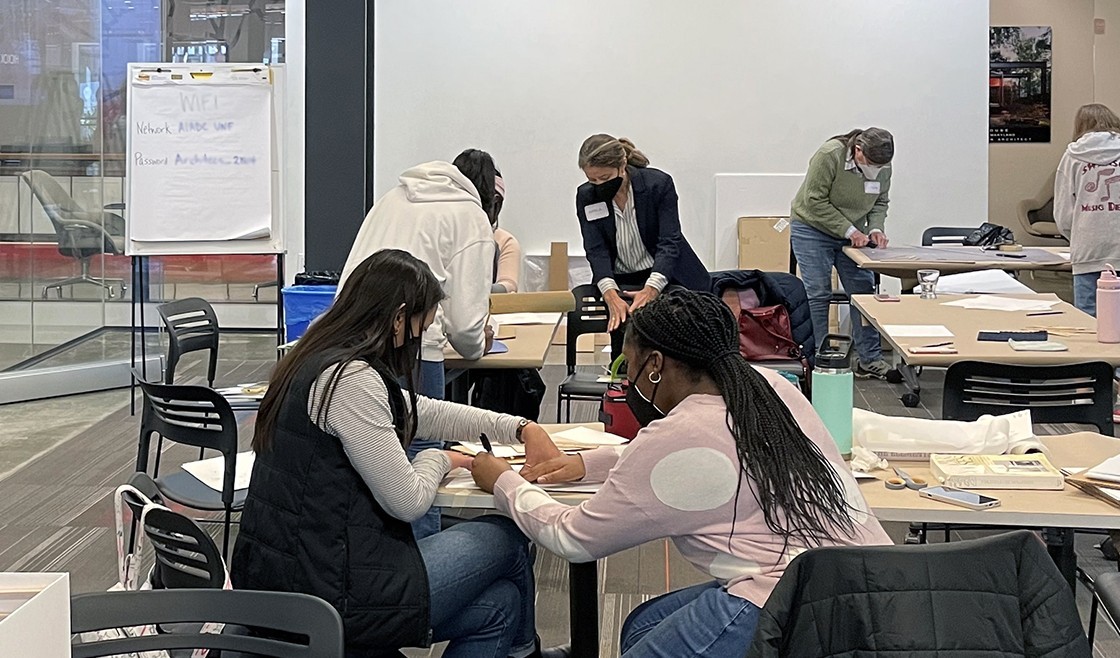BBB Projects Win National AIA and DC Chapter Design Awards
Founded in 1968, BBB began its practice with the belief that architecture, urban design, and historic preservation thrive on the dynamic interaction between past and present. We have pioneered and defined a different approach to the design of the built environment that focuses on architecture empowering people—their interaction with each other on streets and in neighborhoods, their pleasure in moving through the city, and their connection to their physical surroundings.
Each of these award-winning projects embodies these principles. Together with our clients and project teams, we are proud to celebrate the AIA’s recognition of all three projects.
Images compiled in the header above are courtesy TWA Hotel / by David Mitchell (photo of TWA Hotel); by John Bartelstone (photo of Essex Crossing Site 5); and by Picture Plane for Beyer Blinder Belle (rendering of Columbian Quarter).
The TWA Hotel
The TWA Flight Center, designed by Eero Saarinen, is one of the most significant examples of mid-century modern architecture. Opened to great acclaim in 1962, the building was unable to adapt over the decades to the changing aviation industry and was abandoned in 2002. Vacant for over for 17 years, the Flight Center has been fully restored and opened as the new TWA Hotel. The original Flight Center serves as the hotel lobby and is complemented by two new 7-story hotel structures, incorporating 512 guestrooms and a subterranean 45,000-square foot event center. The BBB-led project has received a 2021 National AIA Award for Architecture.
Visit the project page to learn more about BBB’s design and about the full team that made the project possible. Visit the AIA’s website to learn more about the 2021 Architecture program, which celebrates the best contemporary architecture.
Essex Crossing Master Plan
Beyer Blinder Belle, in collaboration with SHoP Architects, created an urban design vision for Manhattan’s largest stretch of undeveloped land below 96th Street. Urban renewal plans of the 1960s displaced the area’s existing community and left the site, stretching across eight city blocks, vacant and contested for decades. When complete, Essex Crossing will comprise nine new properties that total 1.9 million square feet, including significant affordable housing opportunities. Visit the project page to learn more about the site’s history and future.
Submitted by co-designer SHoP Architects, the Essex Crossing Master Plan has received a 2021 National AIA Award for Regional & Urban Design. Visit the AIA’s website to learn more about the program, which recognizes the best in urban design, regional and city planning, and community development.
Columbian Quarter Master Plan
Visit the project page to learn more about BBB’s design and about the full team that made the project possible. Visit the AIA|DC website to learn more about their design awards program, which recognizes design excellence by Washington DC-area architects and the design excellence of projects within Washington DC.





